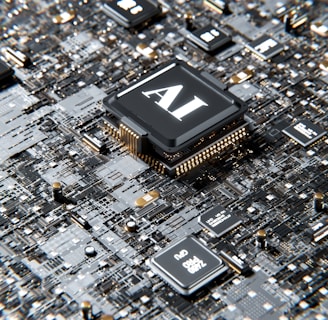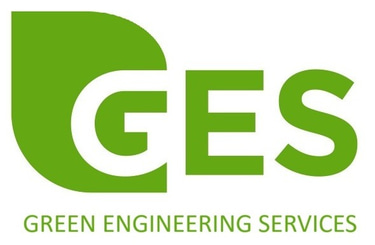How AI is Revolutionising HVAC System Performance
Discover how Artificial Intelligence is transforming the HVAC industry! From enhancing energy efficiency to predicting maintenance needs, AI is paving the way for smarter, more reliable systems that save time, money, and resources. Explore the future of HVAC technology and its game-changing impact on performance.
E.A.
3/2/20253 min read


How AI is Revolutionising HVAC System Performance
The HVAC industry is undergoing a significant transformation, thanks to artificial intelligence (AI). From energy optimisation to predictive maintenance, AI-powered HVAC systems are enhancing efficiency, reducing operational costs, and improving indoor air quality. As buildings become smarter and sustainability takes centre stage, engineers and building managers are leveraging AI to maximise HVAC system performance.
The Role of AI in HVAC
Artificial intelligence enables HVAC systems to learn from historical data, adjust settings in real time, and predict potential failures before they occur. By integrating AI-driven analytics, HVAC engineers can design and maintain systems that respond dynamically to environmental changes, occupancy patterns, and energy demands.
1. AI-Driven Energy Optimisation
One of AI's most significant contributions to HVAC is optimising energy consumption. Traditional HVAC systems operate on predefined schedules and fixed setpoints, often leading to energy wastage. AI, on the other hand, continuously analyses real-time data and adapts HVAC settings based on various factors, such as:
Weather conditions: Adjusting cooling or heating levels in response to temperature fluctuations.
Occupancy levels: Modulating airflow and temperature based on the number of people in a space.
Building usage patterns: Learning when and where HVAC demand is highest and optimising accordingly.
For example, AI-powered systems like BrainBox AI and Honeywell Forge have demonstrated up to a 25% reduction in energy costs by continuously optimising HVAC operations.
2. Predictive Maintenance and Reduced Downtime
Unplanned HVAC system failures can be costly and disruptive. AI-powered predictive maintenance helps identify potential issues before they become major problems. By analysing sensor data and historical performance trends, AI can:
Detect anomalies in temperature, pressure, and airflow.
Predict component failures (e.g., compressors, filters, or fans) before breakdowns occur.
Recommend proactive maintenance schedules to extend equipment lifespan.
This predictive approach not only minimises unexpected downtime but also reduces maintenance costs by preventing unnecessary repairs and replacements.
3. Enhanced Indoor Air Quality (IAQ)
AI also plays a crucial role in maintaining indoor air quality, which is essential for occupant health and comfort. Smart HVAC systems equipped with AI-driven sensors monitor air quality parameters such as CO2 levels, humidity, and pollutants. Based on real-time data, AI can:
Adjust ventilation rates to ensure proper air exchange.
Activate air purifiers or humidifiers as needed.
Provide alerts when air quality drops below safe thresholds.
This proactive air quality management is particularly beneficial for commercial buildings, hospitals, and schools where occupant health is a priority.
4. Smart Integration with IoT & Building Management Systems (BMS)
The combination of AI and the Internet of Things (IoT) is revolutionising HVAC control. AI-driven HVAC systems seamlessly integrate with IoT sensors and Building Management Systems (BMS) to create a holistic approach to building automation. This allows for:
Remote monitoring and control: Facility managers can adjust HVAC settings from anywhere using mobile apps or cloud-based platforms.
Automated fault detection: AI alerts technicians about potential failures, improving response times.
Energy benchmarking: AI compares building energy usage against similar properties and suggests improvements.
5. AI in HVAC Design and Commissioning
AI is also transforming HVAC system design and commissioning. Engineers can use AI-powered simulations to model different system configurations, optimising performance before installation. Additionally, AI-driven commissioning tools ensure that newly installed HVAC systems meet design specifications and operate efficiently from day one.
The Future of AI in HVAC
As AI technology continues to evolve, its role in HVAC will expand further. Future developments may include:
Self-learning HVAC systems that adapt autonomously to changing building conditions.
Advanced machine learning models that improve energy efficiency predictions.
AI-driven fault diagnostics that provide real-time troubleshooting guidance for technicians.
The integration of AI into HVAC systems is no longer a futuristic concept—it is happening now. Building owners, facility managers, and engineers who adopt AI-driven solutions will not only reduce costs but also contribute to a more sustainable built environment.
Conclusion
Artificial intelligence is revolutionising HVAC system performance by enhancing energy efficiency, enabling predictive maintenance, improving indoor air quality, and integrating seamlessly with smart building technologies. As AI adoption grows, HVAC engineers and building operators must embrace these advancements to stay ahead in an increasingly automated and sustainable world.
Are you ready to integrate AI into your HVAC systems? Contact our team to explore AI-driven solutions tailored to your building’s needs.
Green Engineering Services
Small Australian company with big attention to detail.
We specialise in HVAC Mechanical Engineering. Through our trusted specialist partners, we also deliver:
Electrical
Hydraulics
Acoustics
Fire
© 2024. All rights reserved.
Green Engineering Services is a division of GreenEng Consulting Pty Ltd
